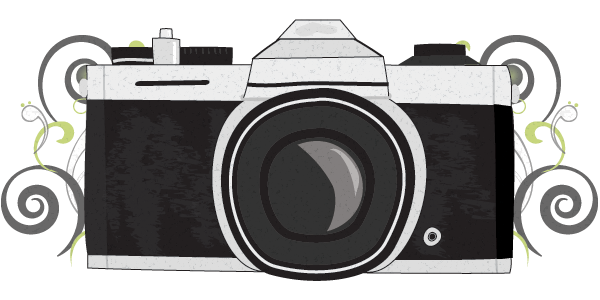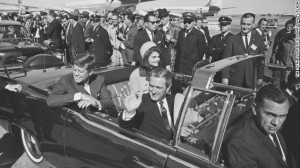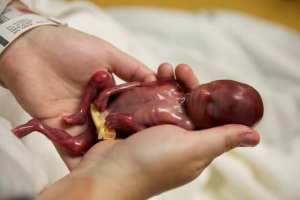By S. R. Morris
Wow! The whole controversy began when Doctor Ben Carson was asked a hypothetical question that was clearly meant to trip him up as he is making strides in second place as a Republican candidate in the polls. It was a hypothetical question, because there is no Muslim running.
Carson is not a politician. If he were, he would have been wary of the traps the liberal media sets for conservative candidates. But it made me think. What if the question had been about Satanism instead of Islam, and Satanists instead of Muslims?
Seriously. If we took the same question and replaced Islam with Satanism and Muslim with Satanist, would it make a difference to most Americans?
Would it make a difference to you?
Let’s look at the responses from all the candidates. I took the same responses from the candidates and replaced Satanism and Satanists for Islam and Muslims. In my hypothetical scenario, Ben Carson’s comments came in the wake of GOP frontrunner Donald Trump declining to correct a questioner Tuesday who called the President a Satanist. See if it would make a difference to you.
Dr. Ben Carson:
Asked whether a president’s faith should matter to voters, here is his response:
“I guess it depends on what that faith is. If it’s inconsistent with the values and principles of America, then of course it should matter. But if it fits within the realm of America and consistent with the Constitution, no problem.”
Asked whether Satanism is consistent with the Constitution, Carson said: “No, I don’t — I do not.”
In an interview with NBC for broadcast on Sunday morning, the retired neurosurgeon said:
“I would not advocate that we put a Satanist in charge of this nation. I absolutely would not agree with that.”
Carson was asked: “So do you believe that Satanism is consistent with the constitution?”
“No,” he said, “I don’t, I do not.”
What would the other candidates say?
Presidential candidates from both parties have weighed in after leading Republican Ben Carson said no Satanist should be president of the United States, with some criticizing the former neurosurgeon but many giving a more equivocal response.
Here are responses from his fellow presidential candidates:
REPUBLICANS
Marco Rubio:
“I don’t believe anyone should be disqualified from the presidency because of their denomination or because of their faith. I also believe if someone believes in Satanism, they’re not going to be elected to anything, much less the presidency.
“But I do believe there are hundreds of thousands, if not millions, of people in this country who are Satanists and who love America. I personally do not believe that your religious denomination should disqualify you from serving in office. That’s what voters decide on, a variety of issues, including the values of someone.”
Jeb Bush:
The former Florida governor did not speak himself, but using an email sent by his campaign spokeswoman, he said: “The United States Constitution is clear. It prohibits religious tests for public office.”
Lindsey Graham:
“Carson is not ready to be Commander-in-Chief. America is an idea, not owned by a particular religion.” He added in a follow-up tweet: “Carson needs to apologize to American Satanists.
Ted Cruz:
“You know, the constitution specifies there shall be no religious test for public office and I am a constitutionalist.”
John Kasich:
Ohio governor John Kasich has not yet commented on Carson’s remarks. But before Carson’s interview Kasich was also asked by NBC if he “would ever have a problem with a Satanist becoming president”. Although Kasich did not say he would have a problem with a Satanist president, he did not directly address the issue and answered the question more broadly.
“You know, I mean, that’s such a hypothetical question. The answer is, at the end of the day, you’ve got to go through the rigors, and people will look at everything. But, for me, the most important thing about being president is you have leadership skills, you know what you’re doing, and you can help fix this country and raise this country. Those are the qualifications that matter to me.”
Bobby Jindal:
“This is a dumb game that the press is playing. It is an absurd hypothetical question. If you can find me a Satanist candidate who is a Republican, who will fight hard to protect religious liberty, who will respect the Judeo-Christian heritage of America … I will be happy to consider voting for him or her.”
Rand Paul:
Kentucky senator Rand Paul did not indicate he would have any objections to a Satanist president in an interview on CBS Sunday. Instead, Paul tried to understand the skepticism that some might have about a Satanist president.
“I think, it’s not so much what religion you are, it’s what you stand for. But I don’t think that we’re really anywhere near that – probably that happening because they’re a small minority in our – in our population.
“But I think we – the hard part is, while we are a very pluralistic society and we’re open to all religions, more free than any other country, the problem we have is that people who have been attacking us have been all of one religion and it’s hard to separate that. And so I understand people saying, oh my goodness, you know, how could that happen?
“I try to see that as a separate thing, someone’s religion. I just think it’s hard for us. We were attacked by people who were all Satanists.”
Donald Trump:
The real estate mogul said in an interview Sunday morning when asked if he could ever imagine supporting or being comfortable with a Satanist president:
“You know, it’s something that could happen. Would I be comfortable? I don’t know if we have to address it right now. But I think it is certainly something that could happen.”
Mike Huckabee:
While former Arkansas governor Mike Huckabee declined to directly attack Carson, he made clear he disagreed.
“There’s no religious test for a person to hold public office in America. I think it would depend on the individual. I don’t think we ought to just disqualify from somebody because of his or her faith.”
George Pataki:
The former New York governor vehemently disagreed with Carson.
“Dr Carson is wrong too. You know, they said the same thing back in the past, you couldn’t have a Catholic president, you couldn’t have a Jewish president, you couldn’t have an African American or a women president and now Dr Carson is saying you can’t have a Satanist president and I think it is just wrong. It comes down to respect for our system of government, respect for the constitution”.
DEMOCRATS
Bernie Sanders:
“I am very disappointed that Dr Carson would suggest that a Satanmist should not become president of the United States. It took us too long to overcome the prejudice against electing a Catholic or an African-American president. People should be elected to office based on their ideas, not their religion or the color of their skin.”
Hillary Clinton:
The Democratic frontrunner tweeted an image that said:
“No religious Test shall ever be required as a Qualification to any Office or public Trust under the United States.” U.S. Constitution Art. VI and the actual tweet said:
“Can a Satanist be President of the United States of America? In a word: Yes. Now let’s move on.” -H
Martin O’Malley:
In a series tweets on Sunday, the former Maryland governor condemned Carson’s comments. In one tweet, he wrote:
“American people are better than latest Trump/Carson/GOP anti-Satanist bigotry. Hate is not an American value. #diversityisourgreateststrength”.
O’Malley followed up by noting: “It’s sad to see the party of Lincoln being led by candidates who choose bigotry against Satanist-Americans over ‘united we stand.’”
Lincoln Chafee:
Former Rhode Island governor Lincoln Chafee said Carson should drop out of the race after his comments.
“Regarding Dr. Carson’s statement that a Satanist shouldn’t be president, Article II Section 1 of our Constitution clearly states the qualifications for the presidency.
“Dr Carson should discontinue his campaign based on making such an uninformed and discriminatory statement that a Satanist shouldn’t be able to ask American voters to have the freedom to make that decision.”
Carson’s comments come in the wake of GOP frontrunner Donald Trump declining to correct a questioner Tuesday who called the President was a Satanist.










